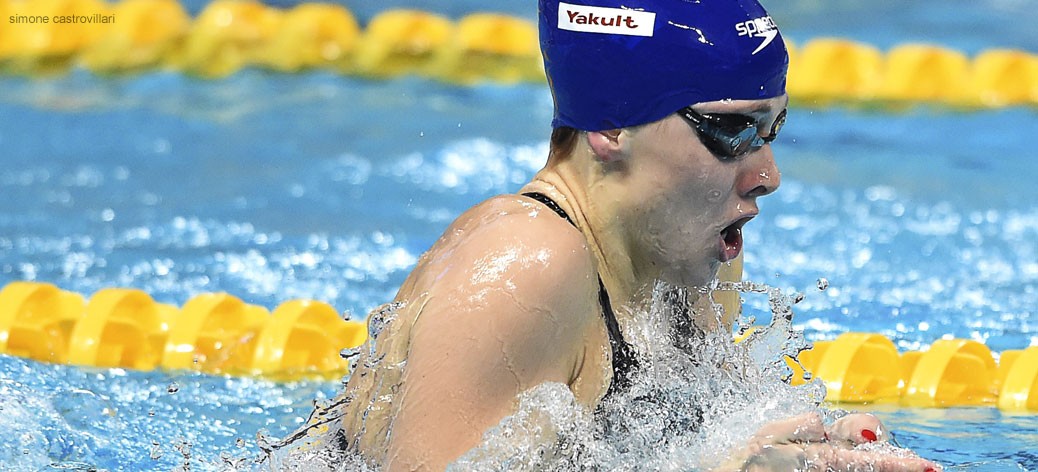The dust has settled in Kazan, the stadium is being put back for football and the swimming world championships are fading into the record books. The perfect time then, to consider the British performance with a measured eye, rather than the impassioned glee that accompanied the best ever medal return that the team delivered, to see what the result means in terms of overall improvement from the disappointments of London and Barcelona.
Firstly then the medals; 9 trips to the podium, including 7 in Olympic events, was the best Britain has ever produced at a world championship, surpassing the 8 won in 2003 and 1975. Arguably the latter performance in Cali was better, achieved as it was without 50m events and no mixed relays, but comparisons with 1975 are difficult as the sport is very different now, with many more nations competing. A direct comparison on like for like events would give the 2015 shoal 7 medals, but importantly, 3 gold compared to 2 in 1975 so there is a strong case that they better their predecessors anyway.
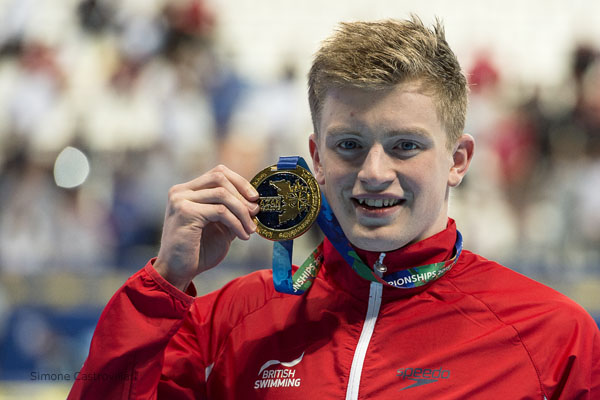
Similarly for 2003, the mixed relays need to be discounted, but again 2015’s crop walked away with more gold than their 2003 forebears, and more medals in Olympic events too. Hence it’s fair to say that Kazan delivered the best ever GB performance at this level in terms of medals secured.
Which brings us to the performance as a whole. Any assessment of the team is not intended to target individuals, but instead to see how overall trends emerge in the preparation of a team. After all it is statistically unlikely that everyone on a team of 36 will manage to be at their absolute peak all together, which is the reason any successful squad needs to have numerous potential medalists amongst their ranks and not to depend too heavily on one or two individuals.
So overall, considering individual swims only, Kazan was a step on from London and Barcelona on most fronts; medals, season’s bests and finalists all improved on the last two global meets and certainly a team where over half of the athletes produced their season’s best performance is a good bounce back from the very low figures seen in 2012.
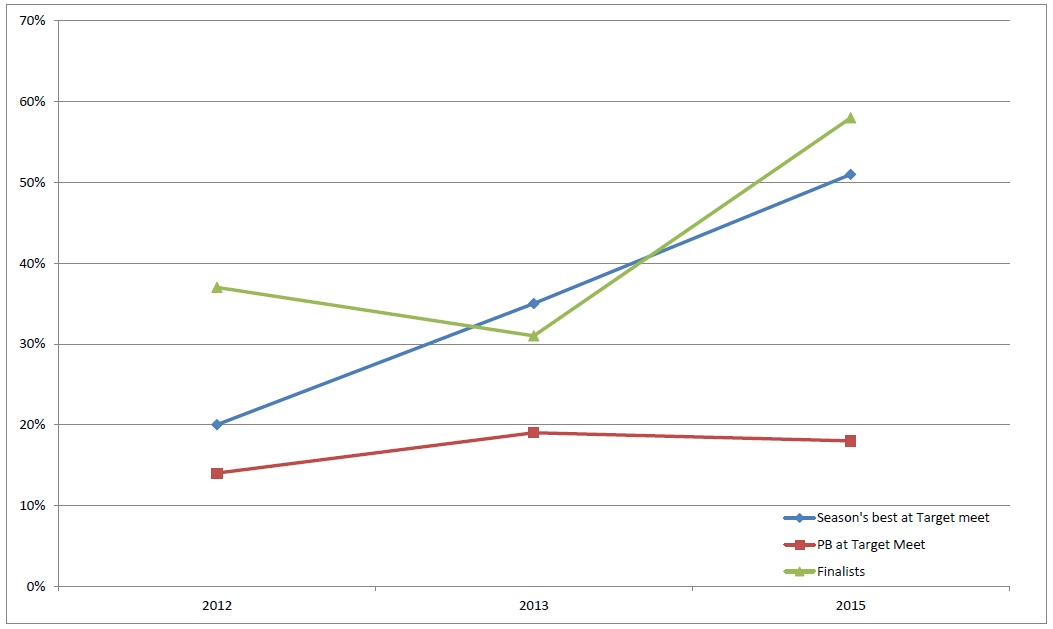
| Year | Swims | Semis | Finals | Medals | %age finals |
| 2012 | 49 | 21 | 18 | 3 | 37% |
| 2013 | 48 | 20 | 15 | 1 | 31% |
| 2013 (Olympic events) | 40 | 16 | 12 | 1 | 30% |
| 2015 | 45 | 24 | 26 | 7 | 58% |
| 2015 (Olympic events) | 39 | 20 | 21 | 6 | 54% |
Note: Comparisons are for individual events only
It also shows in the fact that the medal haul was very close to the season’s potential; if everybody had swum their season best in Kazan, Britain would have secured only one extra medal. More would have been available with everyone at their PB, which raises another question.
| Results with | ||||
| Actual times | Seasons Best | Personal Best | ||
| Gold | 3 | 3 | 5 | |
| Silver | 1 | 2 | 5 | |
| Bronze | 3 | 3 | 5 | |
| Finals | 26 | 31 | 34 | |
The proportion of lifetime bests was still worryingly low, especially given that Hannah Miley and Liam Tancock aside, the entire team has bests dating from this year or last, ruling out assistance from a shiny suit, and thus it would be hoped swimmers would be moving those on at the major meet of the year. Looking closer still, 18 of 45 individual events failed to deliver swims within 1% of their lifetime best.
This wasn’t an issue at Commonwealths and Europeans last year, which saw PB’s at every turn, which leads to one possible explanation for the drop off from 2014 to 2015, the problem of getting an evening swim at world level. This was a particular issue in 2013, but one that improved considerably this year; 73% of individual event swims saw athletes out of the heats and into the evening session. Clearly it helps the medal table when you have swimmers of the calibre of Adam Peaty, who can win gold when not swimming their best, but it’s an area to look at for next year if the team is not to be carried by him. Certainly best times will be needed in Rio if the team is to come close to this performance next year; look after those and the results will look after themselves.
Another interesting aspect of the performance was the shift from women to men. For many years Britain’s women have outperformed the men; indeed 2003 was the last time the men outscored the women in the FINA championship trophy, which scores results for finalists and semi-finalists, but they were still equal in medals 4-all. This time the men were way ahead of the women in the scoring and also dominated the medal haul 6 to 2 (setting the mixed relay aside). Add to that the fact that the the women’s team only produced a single PB and it could be considered a performance short of potential; it may only be a blip but it’s certainly an area of concern.
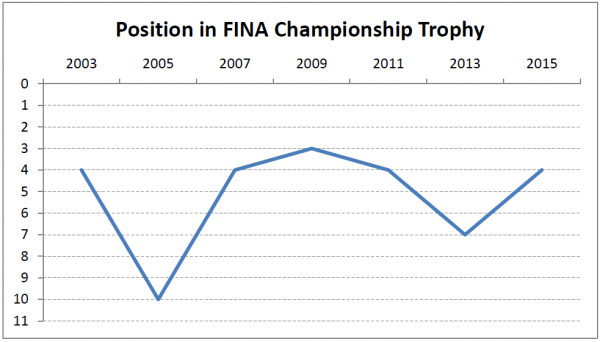
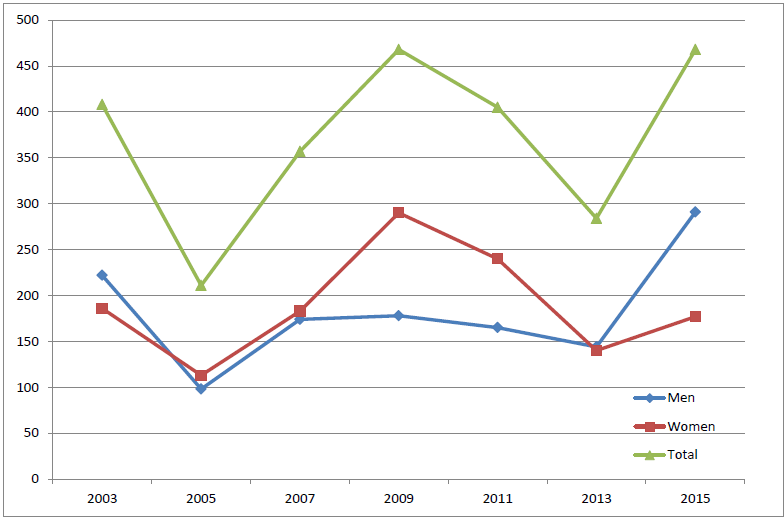
It’s clear that Britain had an outstanding meet in Kazan, with strides forward being made in most areas and in particular in the “gold” column of the medal table. There is, however, no room for complacency; to some extent the excellence on the medal table hides a few small warning signs ahead of Olympic year. Of course, this could be taken as a positive; an excellent set of results with obvious potential for more to be added. For now though, the team can deservedly enjoy the fruits of their considerable success.

